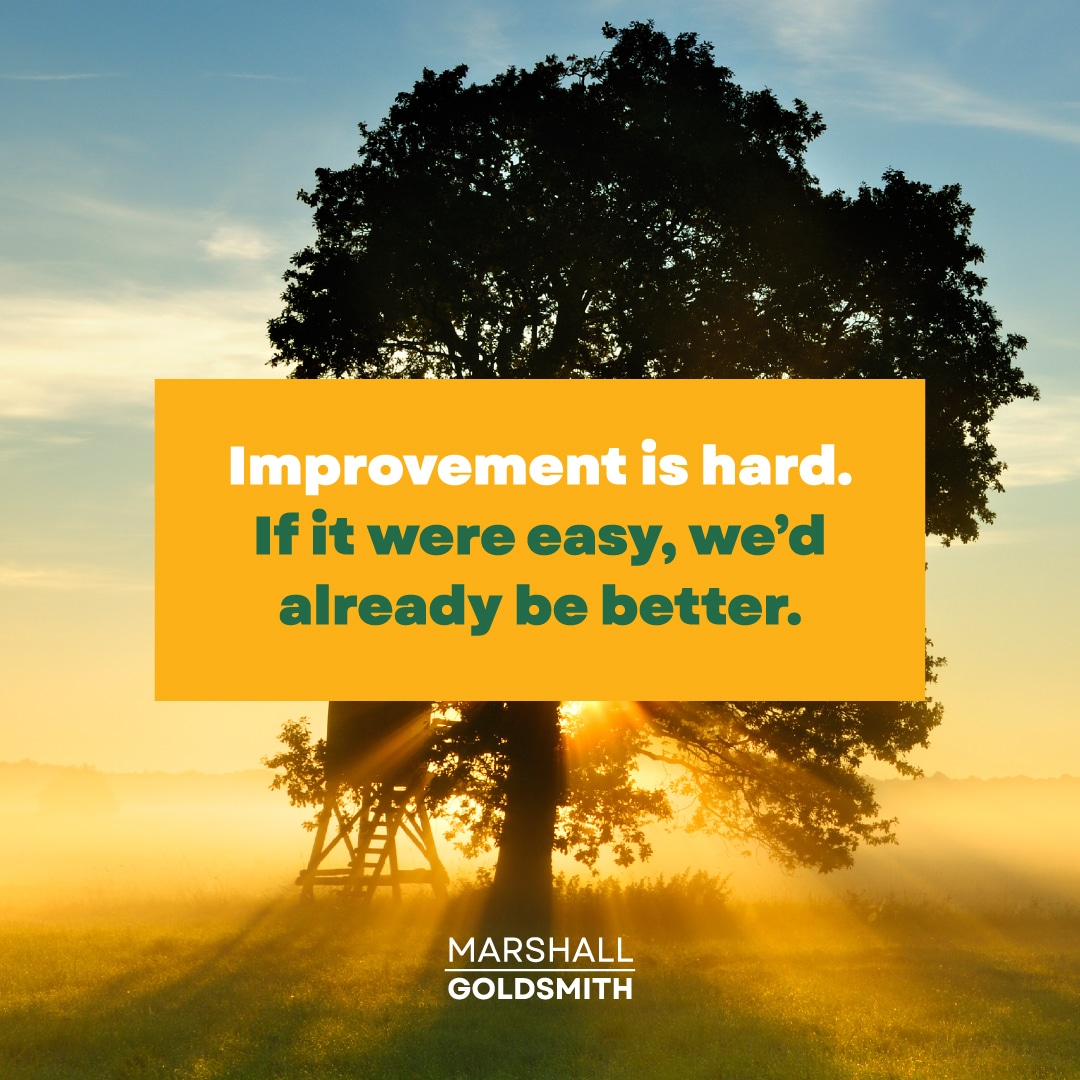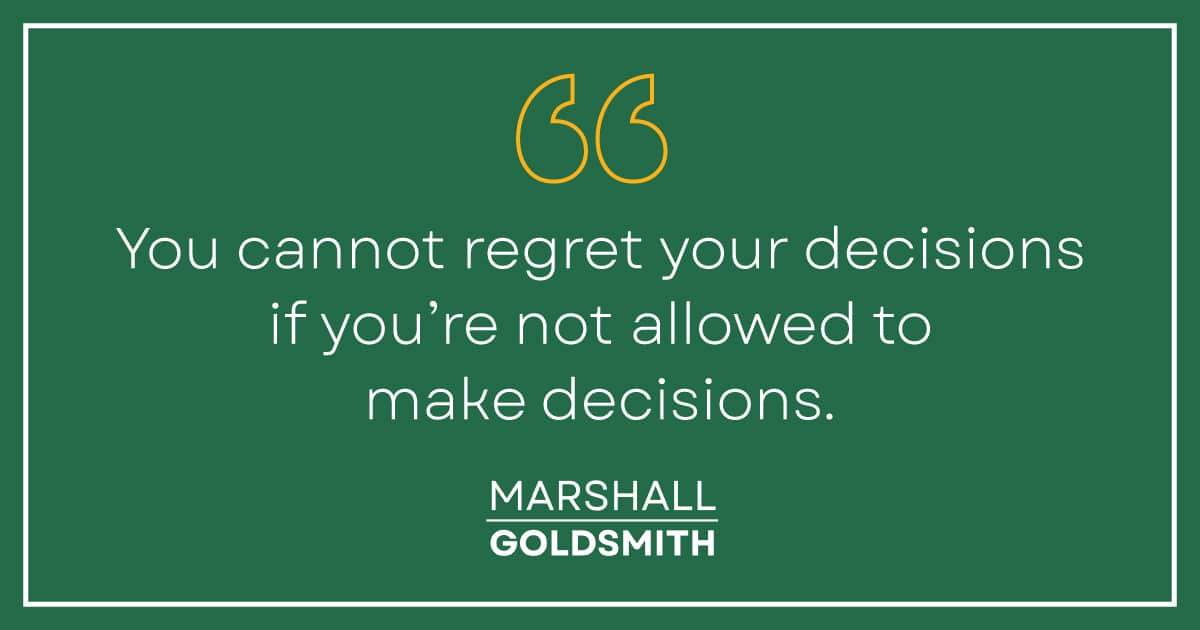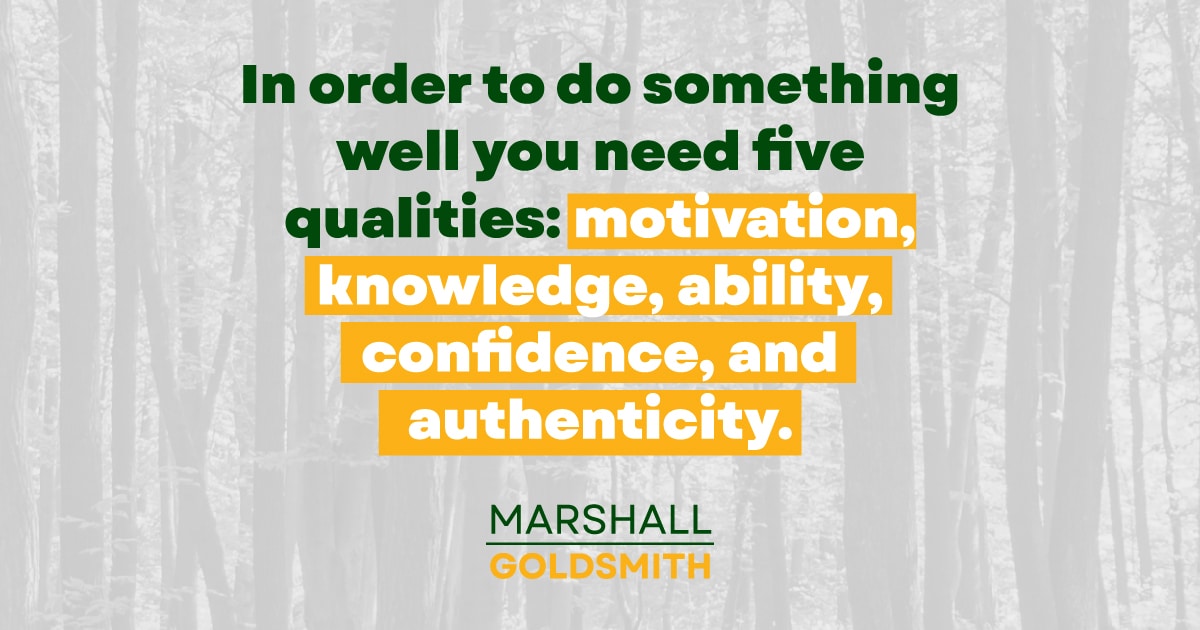Playing Favorites By Marshall Goldsmith There’s a reason I devote...
When we make plans for the future or even just today, why do we so seldom, if ever, plan on distractions? Why do we make our plans as if we are going to live in a perfect world and be left alone to focus on our work or family or whatever it is that we’re hoping to accomplish that day?
This state of being able to completely focus without distraction on whatever task we assign ourselves for the day has never happened in the past, yet we still plan as if this nirvana-like world will exist in the future. We plan as if we will be able to get down to work without accommodating the fact that life always intrudes to alter our priorities and test our focus.

The answer is simple yet we are so very often blind to it. What is it? Well, earning an undergraduate degree in mathematical economics taught me that simply put, this conundrum is the high probability of low-probability events. We don’t plan for low-probability events because, by definition, any one of them is unlikely to occur. Who plans on a flat tire, or accident, or stalled traffic because of an over-turned semi on their way to work? However, the likelihood that one of the hundreds of low-probability events that could occur will occur sometime during our day is very high. We are all victimized, more frequently than we like, by traffic jams and flat tires and accidents.
(Ironically, as I am typing this on a Sunday afternoon, I have just received an email from a client saying, “I have an emergency at work and need to get your considered opinion. Is there any way that we can talk now?” While the probability of her contacting me for
an emergency talk on this particular Sunday afternoon was close to zero [she had never done this before], the probability of some distraction happening on Sunday afternoon is pretty high and this Sunday it just happened to be this client.)
How do you manage this high probability of some low probability event distracting you from what you want to do? Well, in my coaching, I usually work with executive clients for eighteen months. I warn each client that the process will take longer than they expect because there will be a crisis. I can’t name the crisis, but it will be legitimate and real—for example, an acquisition, a defection, a major product recall—and it may dramatically extend the time they need to achieve positive change. They cannot predict it, but they should expect it—and it will distract them and slow them down.

Rather than trying to change the inevitable, it’s far more constructive to accept it and even plan on a distraction or two coming your way during the day. You will be glad you did!
In this 4-part series of interviews with Alex Pascal, CEO of CoachLogix, Marshall shares his executive coaching knowledge and expertise.
Triggers is a #1 New York Times and Wall Street Journal best-seller! Order it at Amazon. See The Marshall Goldsmith Thinkers50 Video Blog for more of this video series.
Shutterstock/faithie

Adding Too Much Value Won’t Get You There By Marshall...
C-Suite Master Class: No, But, However By Marshall Goldsmith Continuing...
The Doerr Institute: Expanding the Market for Coaches By Marshall...
Making Leadership Development Part of the College Degree at Rice...
Sanyin Siang – Winner of the Thinkers50 Marshall Goldsmith Coaching...
Thinkers50 Marshall Goldsmith Distinguished Achievement Award in Coaching – Nominees...
Leading with Influence: What Is Influence360°? By Marshall Goldsmith Founder...
Are You a Dominator, Manipulator, Persuader or Influencer? By Marshall...
Leading with Influence: Redefining Modern Influence Part 2 By Marshall...
My mission is simple. I want to help successful people achieve positive, lasting change and behavior; for themselves, their people, and their teams. I want to help you make your life a little better. With four decades of experience helping top CEOs and executives overcome limiting beliefs and behaviors to achieve greater success, I don’t do this for fame and accolades. I do this because I love helping people!
As an executive educator and coach, I help people understand how our beliefs and the environments we operate in can trigger negative behaviors. Through simple and practical advice, I help people achieve and sustain positive behavioral change.